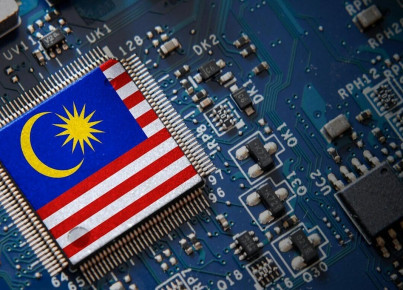Southeast Asia continues to make progress in artificial intelligence, progressively expanding the scope of application
By Luca Menghini
Artificial intelligence is rapidly transforming the economic and technological landscape of Southeast Asia, positioning the region as an emerging hub for innovation. While generative AI and large language models (LLMs) capture global attention, ASEAN is developing a broader range of artificial intelligence applications to enhance supply chains, smart cities, cybersecurity, and digital infrastructure. The increasing adoption of these technologies places Southeast Asia in a strategic position to lead the integration of AI into the region's economic and social systems.
In recent years, ASEAN governments and businesses have made significant investments in artificial intelligence to address future challenges. The IBM Institute for Business Value has highlighted that less than 30% of manufacturing companies in the region fully utilize the data they collect, with only 10% of that data being used for strategic insights. This underutilization presents an opportunity for AI to bridge the gap, optimizing industrial operations through predictive maintenance, process automation, and advanced data analytics.
Supply chains in Southeast Asia are already benefiting from AI integration across multiple sectors. The use of predictive analytics is helping businesses reduce downtime and improve operational efficiency. For example, blockchain technology is increasingly being adopted to ensure transparency and end-to-end traceability in supply chains, reducing the risk of fraud and improving resource management.
Business leaders are facing numerous challenges in the supply chain sector. Resilience has become a priority following disruptions caused by the COVID-19 pandemic and ongoing geopolitical tensions. Moreover, companies must balance sustainability with profitability and overcome the technology skills gap to fully leverage new innovations. Artificial intelligence, integrated with the Internet of Things (IoT), enables smarter logistics and inventory management, enhancing demand forecasting and optimizing distribution routes.
AI is also reshaping the management of smart cities across ASEAN. Countries such as Singapore, Thailand, and Vietnam are implementing AI-based solutions to improve urban security, traffic management, and environmental sustainability. Singapore’s Smart Nation initiative serves as a benchmark for how AI can optimize public services and reduce energy consumption. In Indonesia, Jakarta is using AI-powered flood monitoring systems to mitigate the impact of flooding, while Bangkok has adopted AI for air quality monitoring and public mobility management to address environmental challenges.
Another rapidly growing sector is cybersecurity. ASEAN has recently established its first regional cybersecurity incident response team to counter the rising threats associated with AI-driven cyberattacks. According to Singapore’s Ministry of Defense, cybercrime increased by 82% between 2021 and 2022, with ransomware attacks and cyber intrusions targeting government institutions and financial organizations. AI-powered threat detection is becoming essential to mitigate these risks, and the adoption of AI fraud detection tools is helping companies protect themselves from digital fraud.
Despite AI’s growing adoption in ASEAN, several barriers remain. The lack of harmonized regulations on data protection and cybersecurity poses a significant obstacle to the widespread deployment of AI systems. Additionally, the shortage of AI professionals is a major challenge: the lack of specialized experts in artificial intelligence, data science, and cybersecurity slows down the implementation of new technologies. To address this issue, academic institutions and businesses are investing in workforce training through upskilling programs and partnerships with local universities.
The ASEAN AI startup ecosystem is attracting increasing investment, with startups like Social+ in Thailand and Wiz in Singapore securing tens of millions of dollars to develop AI-driven solutions for customer engagement and business process automation. However, AI growth in Southeast Asia is not limited to the private sector. Governments across the region are promoting pro-innovation policies, including funding programs for AI startups and initiatives to create a clearer regulatory framework.
The future of artificial intelligence in ASEAN appears highly promising. The growing integration of AI into urban infrastructure, supply chains, and cybersecurity will solidify Southeast Asia’s position as a global technology innovation hub. The region's ability to tackle regulatory and infrastructure challenges will be crucial in cementing its leadership in AI adoption. With a rapidly developing ecosystem and continuous investment, Southeast Asia is poised to become one of the key players in the artificial intelligence revolution in the coming years.






